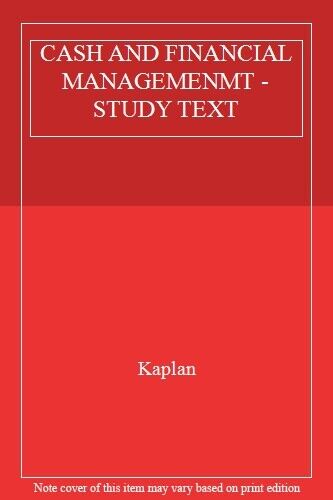Question
Multiple Choice Select the best answer to each question. Space is provided for computations after the quantitative questions. ___ 1. (CPA) Barter Corporation has been
Multiple Choice
Select the best answer to each question. Space is provided for computations after the quantitative questions.
___ 1. (CPA) Barter Corporation has been buying Product A in lots of 1,200 units, a four months supply. The cost per unit is $100; the ordering cost is $200 per purchase order; and the annual inventory carrying cost for one unit is $25. Assume the units are required evenly throughout the year. The EOQ is:
a. 144 units.
b. 240 units.
c. 600 units.
d. 1,200 units.
___ 2. (CPA) Garmar, Inc., determines the following information for a given year:
EOQ in units
5,000
Total annual ordering costs
$10,000
Ordering cost per purchase order
$50
Cost of carrying one unit for one year
$4
What is Garmars estimated annual demand in units?
a. 1,000,000
b. 2,000,000
c. 4,000,000
d. Cannot be determined from the information given.
____ 3. (CPA adapted) A manufacturer expects to produce 200,000 widgets during the fiscal year ending June 30, 2011, to supply the demand that is uniform throughout the year. The setup costs for each production run of widgets are $144. The cost of carrying one widget in inventory is $0.20 per year. After a batch of widgets is produced and placed in inventory, it is sold at a uniform rate and inventory reaches zero when the next batch of widgets is completed. The quantity of widgets (rounded to the nearest one hundred widgets) that would be produced in each run in fiscal year 2011 to minimize total annual relevant setup and carrying costs is:
a. 12,000.
b. 12,500.
c. 16,000.
d. 17,000.
e. 19,000.
____ 4. (CPA) For its EOQ model, a company has ordering cost per purchase order of $10, and annual cost of carrying one unit in stock of $2. If the ordering cost per purchase order increases by 20%, and the annual cost of carrying one unit in stock increases by 25%, while all other considerations remain constant, EOQ:
____ 5. (CMA) Canseco Enterprises uses 84,000 units of Part 256 in manufacturing activities over a 300-day work year. The usual purchase-order lead time for the part is six days; occasionally, however, the lead time has been as high as eight days. The company now desires to adjust the size of its safety stock. The size of the safety stock and the likely effect on stock out costs and carrying costs, respectively, are:
a. 560 units, decrease, decrease
b. decrees .
c. increase.
d. 1,680 units, increase, no change.
e. 2,240 either increases or decreases depending on the reorder point.
___ 6. (CPA adapted) Key Co. changed from a traditional production system with job costing to a just-in-time production system with backflush costing. What are the expected effects of these changes on Keys inspection cost and record-keeping detail of costs tracked to jobs in process?
____ 7. (CMA) Which one of the following statements best describes material requirements planning (MRP)?
a. A planning system that is used to determine the amount and timing of the optimal inventory level.
b. A software tool that is used to forecast the ordering quantities of inventories that tend to be subject to a variable and continual demand.
c. A planning system that is used to determine the amount and timing of inventories that are dependent on the demand for finished goods.
d. A software tool that is used to forecast the schedule of material purchases that tend to be subject to a variable and continual demand.
e. A formal system of ordering and scheduling finished goods inventories.
Step by Step Solution
There are 3 Steps involved in it
Step: 1

Get Instant Access to Expert-Tailored Solutions
See step-by-step solutions with expert insights and AI powered tools for academic success
Step: 2

Step: 3

Ace Your Homework with AI
Get the answers you need in no time with our AI-driven, step-by-step assistance
Get Started


